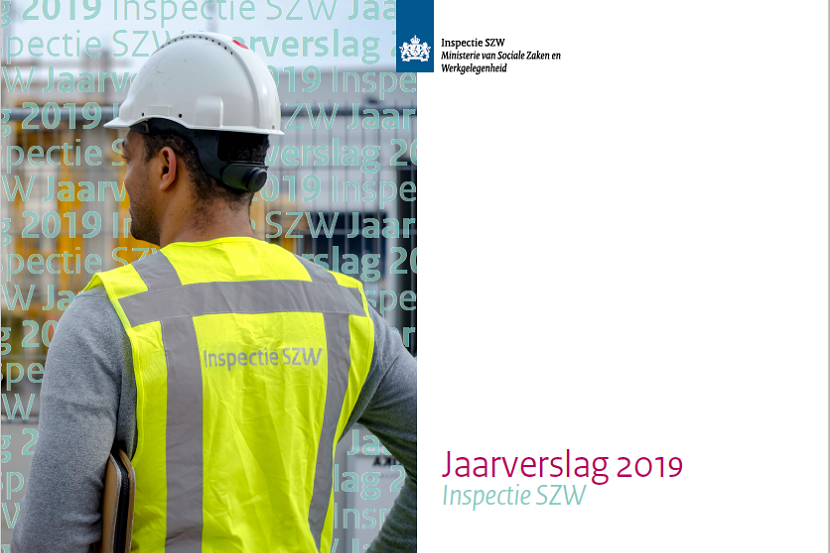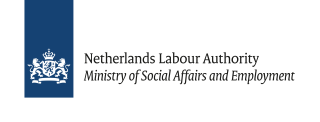Inspections contribute to fair, healthy and safe employment
In 2019, the Inspectorate SZW increased its focus on combating unfair employment and labour exploitation. The check on the safe use of hazardous substances yielded positive results and we made progress with preventing unsafe and unhealthy working conditions. This emerges from the annual report published by the Inspectorate SZW on 14 May 2020. In his foreword, the inspector general mentions the fact that looking back to 2019 seems unreal in the current circumstances. At the same time, it is important to keep connecting past, present and future.
Underpayment, illegal labour and labour exploitation are persistent problems which the Inspectorate wants to give priority to. The tackling of labour exploitation meant that in 2019, more exploitation situations were stopped, rescuing victims from their awkward situation. In 2019, the Inspectorate received several reports about labour exploitation and it managed to approach one or more potential victims. These cases concerned 83 potential victims. A total of 43 reports of labour exploitation were documented. These reports were then assessed by the Public Prosecution Service. In some cases, criminal prosecution was not possible and the Inspectorate opted for an administrative approach.
Tackling unfair employment
During the process of tackling rogue employment agencies, offenders faced checks, re-inspections, management interviews and criminal investigations. Violations were identified in 41% of these inspections, mainly relating to illegal employment. One important point for attention concerns the notorious offenders who restart after receiving a fine; in 2019, they faced re-inspections and additional checks, aiming to stop their criminal activities.
For the Bogus Schemes programme, the investigation efforts in 2019 mainly focused on the platform economy, bogus self-employment, fraud by persons employed under someone else’s identity (so-called lookalikes), misuse of internship after studies and PO box companies. At the request of employers’ and employees’ organisations, the Inspectorate conducted investigations into non-compliance with collective agreement provisions. Violations were discovered in 16 cases.
In other sectors too, attention for fair employment was unabatedly high in 2019. Last year, some one hundred companies in the beauty sector were inspected and in a quarter of the cases, violations were identified in the fields of working hours, work permits and underpayment. In the category of nail studios, the Inspectorate has indications that a group of companies may serve as a front for criminal or undermining activities. In 2020, the nail studio issue will result in a separate inspection strategy in collaboration with chain partners.
Exposure to hazardous substances
In 2019, a specialist hazardous substances team was set up. Checks show that a lot of employers still do not pay enough attention to the exposure to hazardous substances. The inspections work because during a second check, roughly twice as many employers proved to abide by the rules. The average number of hazardous substances used by these companies has also reduced, from 29 to 21. In 2019, the Inspectorate intensified its contribution to the collective checks and monitoring of large chemical companies (these are companies to which the Dutch Major Accidents (Risks) Decree 1999 applies); participation has risen from 60% in 2018 to 70% in 2019.
More attention for healthy and safe employment
In 2019 too, the number of reports, investigations and fatalities of serious industrial accidents went up. The increase in capacity needed for accident investigations and reports about healthy and safe employment was halted in the year under review. A pilot for differentiated tackling of accident investigations was continued in 2019, with the aim of raising the safety level and awareness at companies where an industrial accident has taken place. The first results of this pilot are positive.
The impact of the coronavirus on society and the economy also meant that changes had to be made at the Inspectorate SZW. The reporting process was changed, for instance. It has been set up differently so that corona-related reports are subject to a specific registration, assessment and approach. Also, strategies are being formulated for new risks such as fraud with subsidy schemes set up in connection with the corona crisis. The website of the Inspectorate provides more details about the provisions of the working conditions regulations on the basis of which enforcement takes place so as to enable the Inspectorate to continue to contribute to healthy, safe and fair employment, in these times too.
See for more information: the Summary of the Annual Report 2019 and in Dutch our website www.inspectieszw.nl:
- Alternatively, navigate directly to the complete annual report for 2019
- Also worth reading is the Monitor of industrial accidents and complaints about working conditions

